Medical articles
Are there foods that can lower blood pressure?
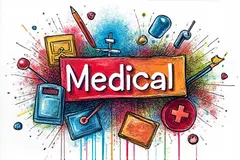 Can Certain Foods Lower Blood Pressure?
High blood pressure is a common health concern that affects millions of people worldwide. While medication can help manage this condition, many individuals are turning to natural remedies, including dietary changes, to lower their blood pressure levels. Can certain foods really make a difference? The answer is yes!... read more...
Can Certain Foods Lower Blood Pressure?
High blood pressure is a common health concern that affects millions of people worldwide. While medication can help manage this condition, many individuals are turning to natural remedies, including dietary changes, to lower their blood pressure levels. Can certain foods really make a difference? The answer is yes!... read more...
How does dehydration affect the body?
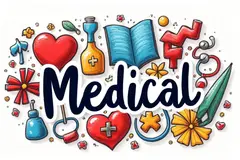 Dehydration is a condition that occurs when your body loses more fluids than it takes in, leading to an imbalance of essential electrolytes and water. This can have significant impacts on various bodily functions and overall health. Understanding how dehydration affects the body is crucial for maintaining optimal wellness.
Dehydration's Impact on Your... read more...
Dehydration is a condition that occurs when your body loses more fluids than it takes in, leading to an imbalance of essential electrolytes and water. This can have significant impacts on various bodily functions and overall health. Understanding how dehydration affects the body is crucial for maintaining optimal wellness.
Dehydration's Impact on Your... read more...
How many chromosomes are in human cells?
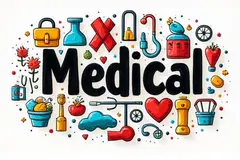 How Many Chromosomes Do Humans Have?
The human genome is a complex and fascinating topic, with one of the most frequently asked questions being about the number of chromosomes humans possess. Understanding this fundamental aspect of genetics is crucial for anyone interested in biology or medical science.
What's the Chromosome Count in Humans?
The chromosome... read more...
How Many Chromosomes Do Humans Have?
The human genome is a complex and fascinating topic, with one of the most frequently asked questions being about the number of chromosomes humans possess. Understanding this fundamental aspect of genetics is crucial for anyone interested in biology or medical science.
What's the Chromosome Count in Humans?
The chromosome... read more...
Can laughter reduce pain?
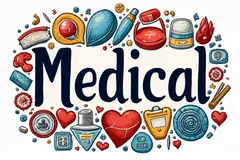 Can Laughter Act as Pain Relief?
The age-old adage "laughter is the best medicine" has long been a source of comfort and hope for those suffering from various forms of pain. But can laughter truly act as an effective form of pain relief? This article delves into the scientific evidence supporting the idea that laughter can indeed help alleviate physical... read more...
Can Laughter Act as Pain Relief?
The age-old adage "laughter is the best medicine" has long been a source of comfort and hope for those suffering from various forms of pain. But can laughter truly act as an effective form of pain relief? This article delves into the scientific evidence supporting the idea that laughter can indeed help alleviate physical... read more...
Common symptoms of kidney stones?
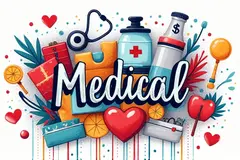 Common Symptoms You Shouldn't Ignore: Kidney Stones
Kidney stones are a painful and common condition that can affect anyone. Understanding the symptoms is crucial for prompt diagnosis and treatment. This article delves into the typical signs of kidney stones, helping you recognize when to seek medical attention.
How to Spot Kidney Stone Pain Quickly
Kidney... read more...
Common Symptoms You Shouldn't Ignore: Kidney Stones
Kidney stones are a painful and common condition that can affect anyone. Understanding the symptoms is crucial for prompt diagnosis and treatment. This article delves into the typical signs of kidney stones, helping you recognize when to seek medical attention.
How to Spot Kidney Stone Pain Quickly
Kidney... read more...
How do lungs work?
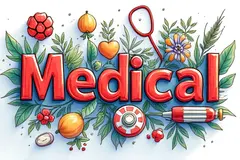 The human lungs are remarkable organs that play a critical role in sustaining life by facilitating the exchange of oxygen and carbon dioxide. This article will delve into the intricate workings of the respiratory system, focusing on how lungs function to keep us alive.
Inside Your Lungs: Function Explained
The primary function of your lungs is to extract... read more...
The human lungs are remarkable organs that play a critical role in sustaining life by facilitating the exchange of oxygen and carbon dioxide. This article will delve into the intricate workings of the respiratory system, focusing on how lungs function to keep us alive.
Inside Your Lungs: Function Explained
The primary function of your lungs is to extract... read more...
Are peanuts good for health?
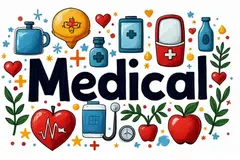 Are Peanuts Actually Healthy?
Peanuts are a staple in many diets around the world and have been associated with numerous health benefits. However, misconceptions about their nutritional value persist. This article aims to provide clarity on whether peanuts truly offer health advantages and debunk common myths.
Debunking Peanut Health Myths
One of the most... read more...
Are Peanuts Actually Healthy?
Peanuts are a staple in many diets around the world and have been associated with numerous health benefits. However, misconceptions about their nutritional value persist. This article aims to provide clarity on whether peanuts truly offer health advantages and debunk common myths.
Debunking Peanut Health Myths
One of the most... read more...
What is a pacemaker used for?
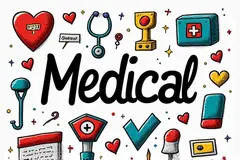 A pacemaker is an essential medical device that helps regulate the heart's rhythm, ensuring it beats at a normal pace. This article delves into the various aspects of pacemakers, including who needs them, how they work, their benefits, and what to expect during surgery.
Who Needs a Pacemaker?
Pacemakers are primarily used for individuals suffering from... read more...
A pacemaker is an essential medical device that helps regulate the heart's rhythm, ensuring it beats at a normal pace. This article delves into the various aspects of pacemakers, including who needs them, how they work, their benefits, and what to expect during surgery.
Who Needs a Pacemaker?
Pacemakers are primarily used for individuals suffering from... read more...
Can exercise help insomnia?
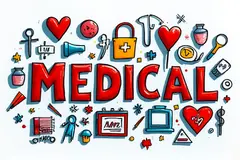 Can Exercise Cure Insomnia?
Insomnia is a common sleep disorder that affects millions of people worldwide, causing difficulty falling asleep or staying asleep. While there are numerous remedies and treatments available, exercise has emerged as an effective natural solution for those suffering from insomnia.
Beat Insomnia with Fitness
The relationship between... read more...
Can Exercise Cure Insomnia?
Insomnia is a common sleep disorder that affects millions of people worldwide, causing difficulty falling asleep or staying asleep. While there are numerous remedies and treatments available, exercise has emerged as an effective natural solution for those suffering from insomnia.
Beat Insomnia with Fitness
The relationship between... read more...
What are some natural remedies for insomnia?
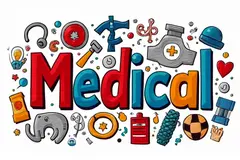 Insomnia can be a frustrating and debilitating condition, but there are several natural remedies that may help alleviate its symptoms. From herbal teas to essential oils, this article explores various methods to naturally improve your sleep quality.
Natural Remedies for Insomnia Relief
The first step in addressing insomnia is understanding the underlying... read more...
Insomnia can be a frustrating and debilitating condition, but there are several natural remedies that may help alleviate its symptoms. From herbal teas to essential oils, this article explores various methods to naturally improve your sleep quality.
Natural Remedies for Insomnia Relief
The first step in addressing insomnia is understanding the underlying... read more...
Does garlic repel vampires?
 Does Garlic Really Repel Vampires?
The age-old question of whether garlic can protect humans from the mythical creatures known as vampires has fascinated people for centuries. This article delves into the folklore, science, and cultural significance surrounding this topic to determine if there is any truth to the belief that garlic acts as a vampire... read more...
Does Garlic Really Repel Vampires?
The age-old question of whether garlic can protect humans from the mythical creatures known as vampires has fascinated people for centuries. This article delves into the folklore, science, and cultural significance surrounding this topic to determine if there is any truth to the belief that garlic acts as a vampire... read more...
Are probiotics good for skin health?
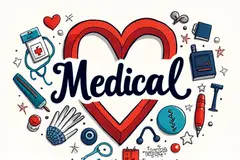 Can Probiotics Improve Skin Health?
The relationship between gut health and skin condition has been a topic of increasing interest in recent years. Probiotics, known primarily for their digestive benefits, have also shown promising results when it comes to enhancing skin health. This article explores the various ways probiotics can benefit your skin.
How... read more...
Can Probiotics Improve Skin Health?
The relationship between gut health and skin condition has been a topic of increasing interest in recent years. Probiotics, known primarily for their digestive benefits, have also shown promising results when it comes to enhancing skin health. This article explores the various ways probiotics can benefit your skin.
How... read more...